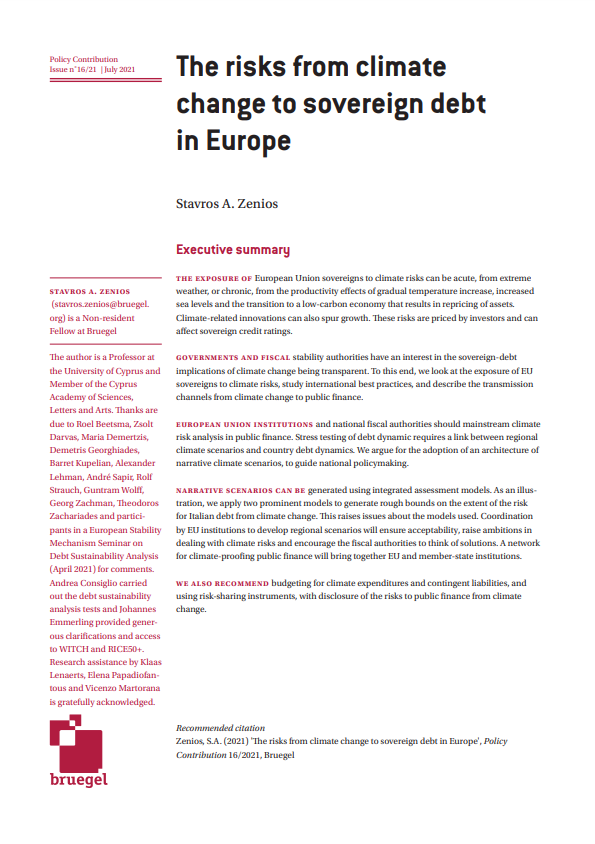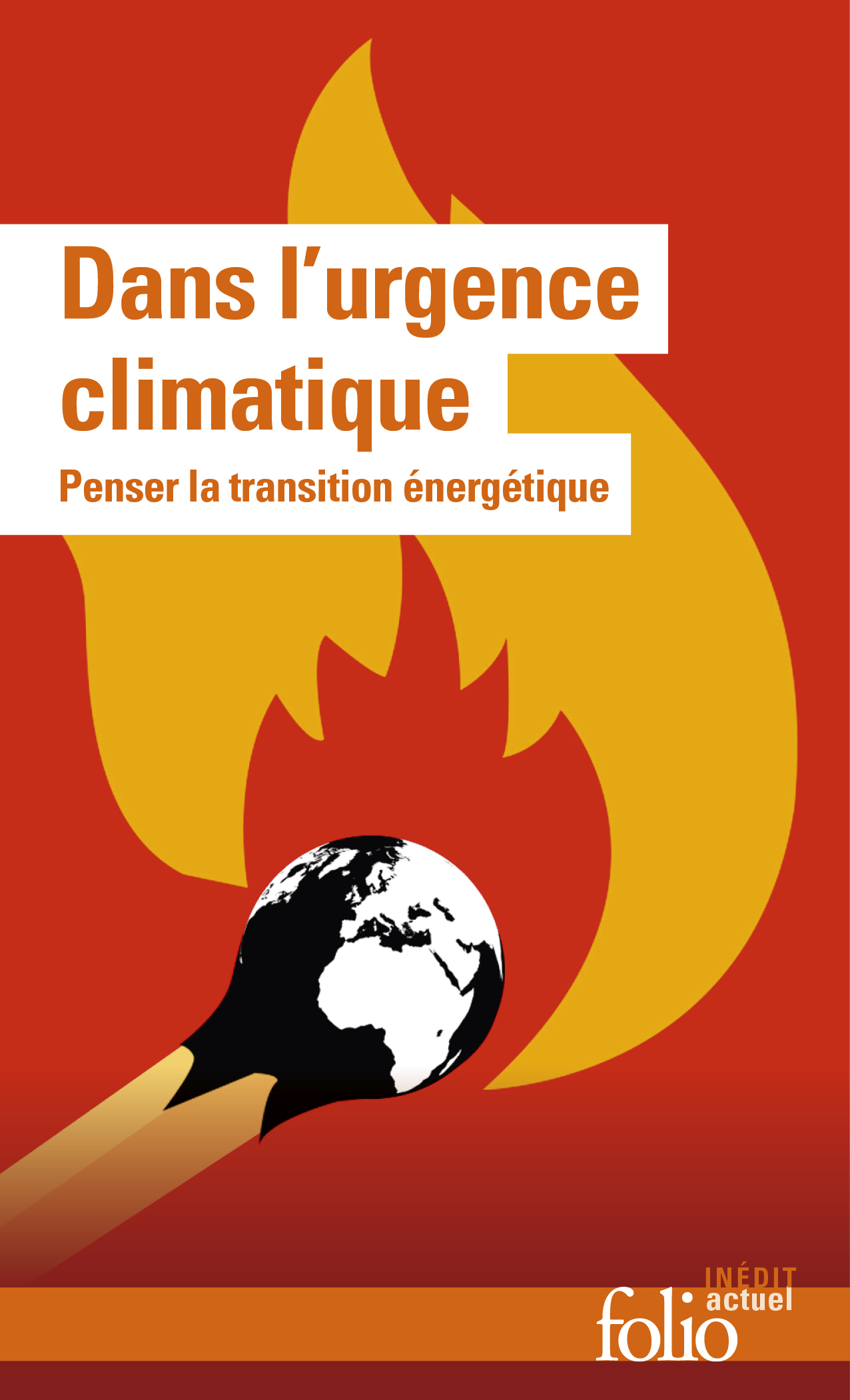Policy Contribution
The risks from climate change to sovereign debt in Europe
European Union institutions and national fiscal authorities should incorporate climate risk in debt sustainability analysis.
The author is a Professor at the University of Cyprus and Member of the Cyprus Academy of Sciences, Letters and Arts. Thanks are due to Roel Beetsma, Zsolt Darvas, Maria Demertzis, Demetris Georghiades, Barret Kupelian, Alexander Lehmann, André Sapir, Rolf Strauch, Guntram Wolff, Georg Zachman, Theodoros Zachariades and participants in a European Stability Mechanism Seminar on Debt Sustainability Analysis (April 2021) for comments. Andrea Consiglio carried out the debt sustainability analysis tests and Johannes Emmerling provided generous clarifications and access to WITCH and RICE50+. Research assistance by Klaas Lenaerts, Elena Papadiofantous and Vicenzo Martorana is gratefully acknowledged.
The exposure of European Union sovereigns to climate risks can be acute, from extreme weather, or chronic, from the productivity effects of gradual temperature increase, increased sea levels and the transition to a low-carbon economy that results in repricing of assets. Climate-related innovations can also spur growth. These risks are priced by investors and can affect sovereign credit ratings.
Governments and fiscal stability authorities have an interest in the sovereign-debt implications of climate change being transparent. To this end, we look at the exposure of EU sovereigns to climate risks, study international best practices, and describe the transmission channels from climate change to public finance.
European union institutions and national fiscal authorities should mainstream climate risk analysis in public finance. Stress testing of debt dynamic requires a link between regional climate scenarios and country debt dynamics. We argue for the adoption of an architecture of narrative climate scenarios, to guide national policymaking.
Narrative Scenarios can be generated using integrated assessment models. As an illustration, we apply two prominent models to generate rough bounds on the extent of the risk for Italian debt from climate change. This raises issues about the models used. Coordination by EU institutions to develop regional scenarios will ensure acceptability, raise ambitions in dealing with climate risks and encourage the fiscal authorities to think of solutions. A network for climate-proofing public finance will bring together EU and member-state institutions.
We also recommend budgeting for climate expenditures and contingent liabilities, and using risk-sharing instruments, with disclosure of the risks to public finance from climate change.
Recommended citation:
Zenios, S.A. (2021) ‘The risks from climate change to sovereign debt in Europe’, Policy Contribution 16/2021, Bruegel











